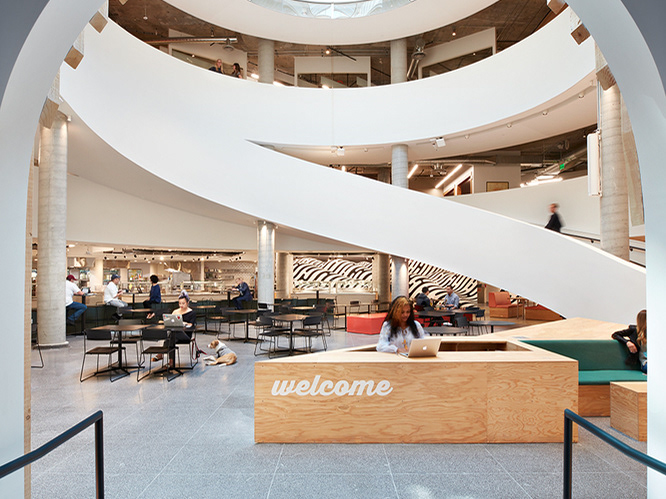WaSH – Improves Public Health
in Underserved Communities
in Underserved Communities
Renderings developed by Payette
Project Type: Product Design & Research
Design Team: Payette & Beyond Walls
Responsibilities: User research, signage design, prototyping & assembly, visual design
Design Tools: Adobe Illustrator, Adobe InDesign, Revit
Design Team: Payette & Beyond Walls
Responsibilities: User research, signage design, prototyping & assembly, visual design
Design Tools: Adobe Illustrator, Adobe InDesign, Revit
Summary
In the summer of 2020, Payette partnered with Beyond Walls on a pro bono project to combat the spread of COVID-19 and support underserved communities in Lynn, MA. To reduce the transmission of COVID-19, the Centers for Disease Control and Prevention (CDC) recommended wearing masks and frequent hand washing. This created an urgent need to build and install stand-alone, hands-free wash stations across the city's high-traffic areas, enabling a safe return to public spaces including parks, playgrounds, and outdoor dining areas.
Role
For three months, I applied my design thinking and research skills to understand end users, assemble prototypes for deployment in high-traffic areas, and create accessible signage for users.
Project Goal
To mitigate the spread of COVID-19 through the creation of publicly, accessible hand-washing stations.
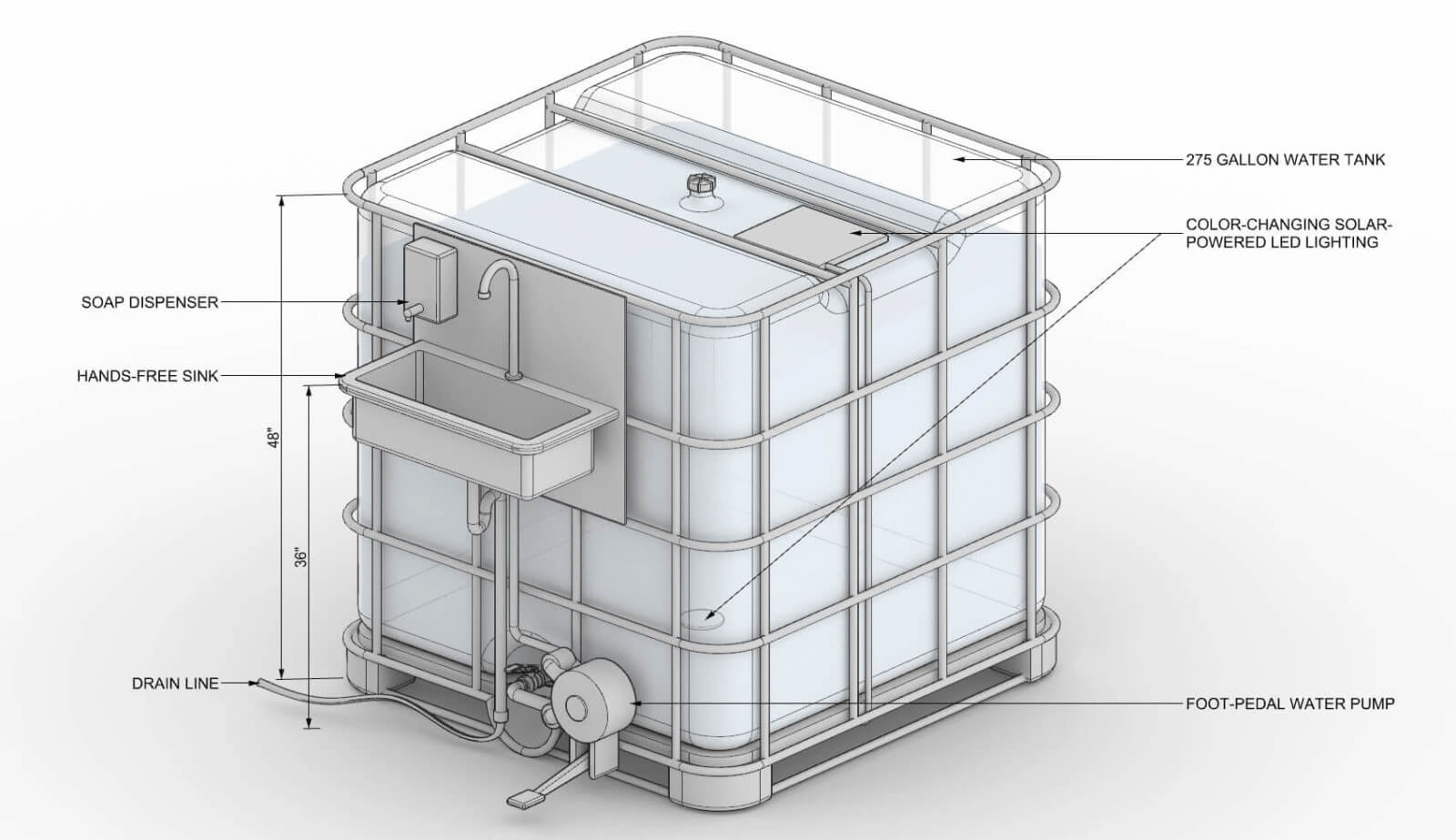
Iteration 1 - Design Drawing
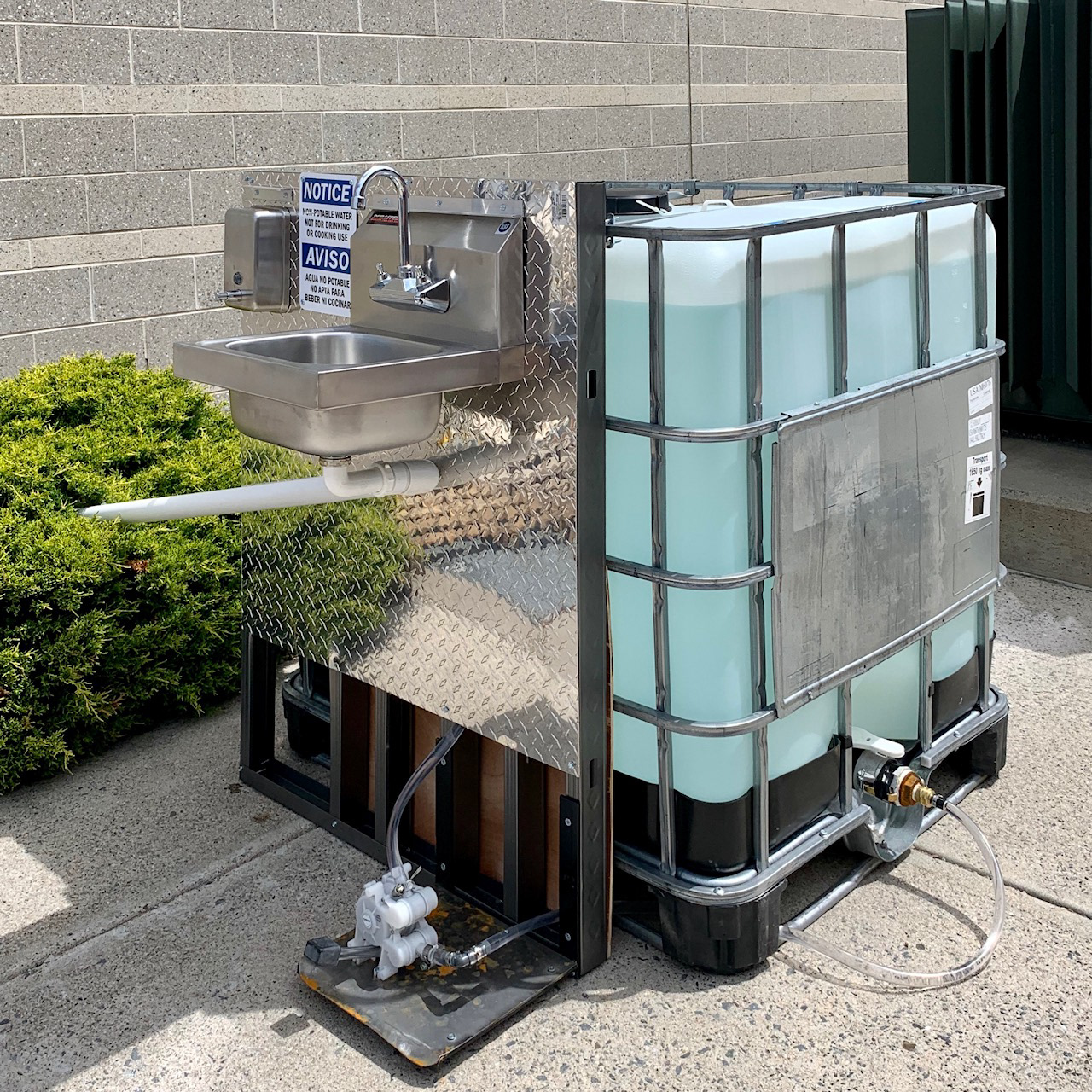
Iteration 1 - Prototype
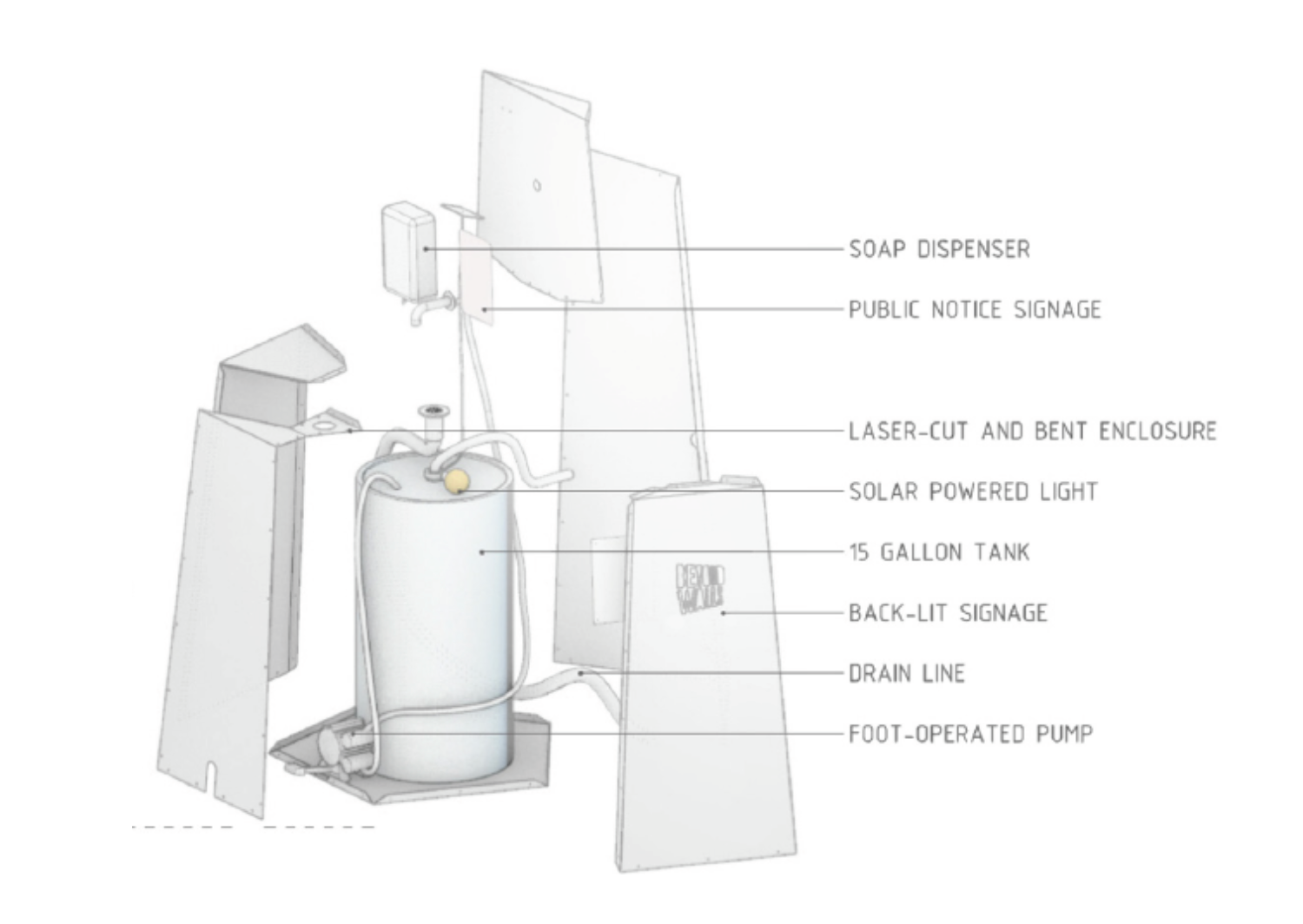
Iteration 2 - Design Drawing
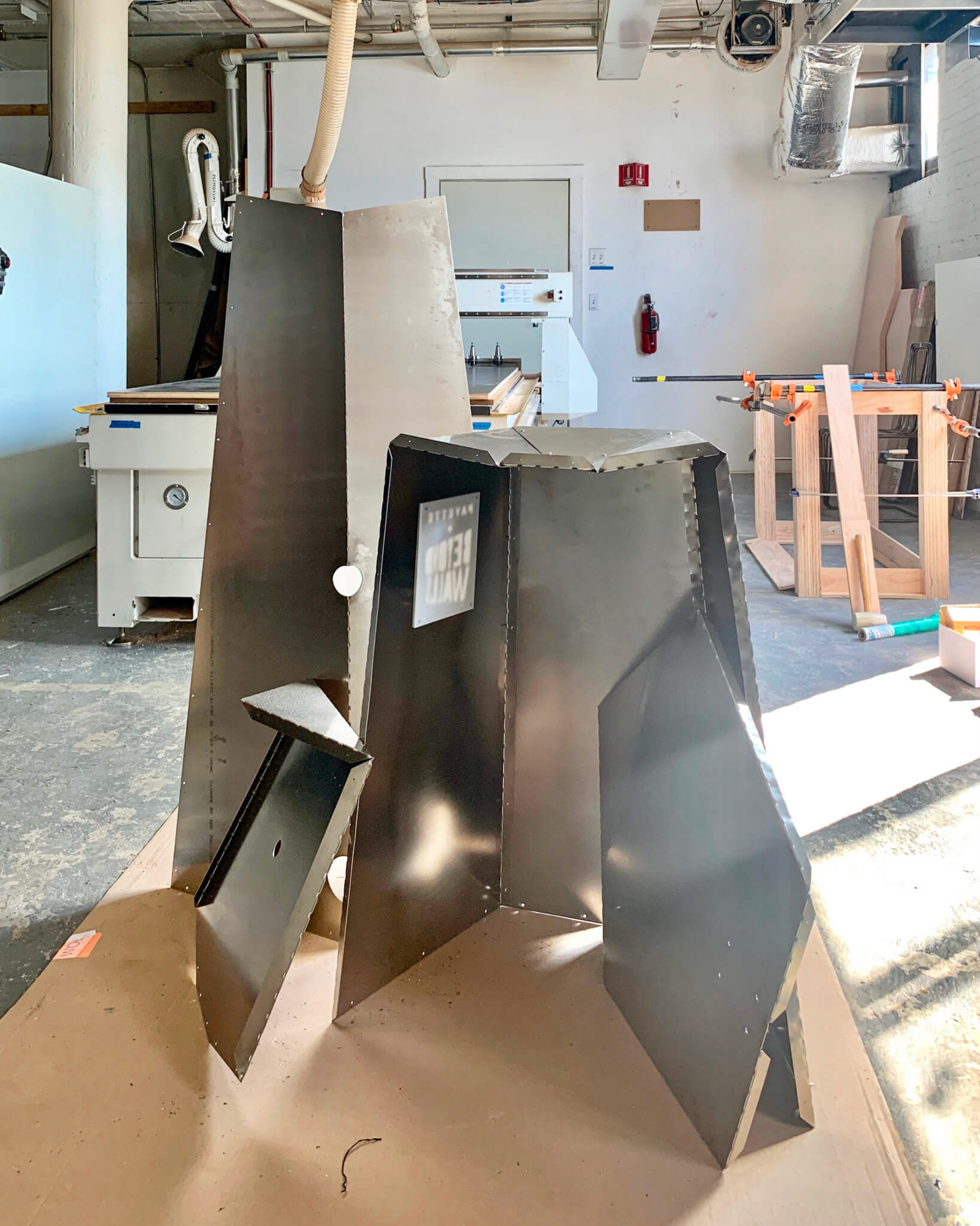
Iteration 2 - Prototype
Observational Research
After several iterations, the team settled on weather-resistant units crafted from laser-cut sheet metal, featuring solar-powered lighting, and operated by foot pedals. Once the final prototype was installed in high-traffic areas, our team observed that users struggled to operate the water stations. Through an ethnographic study, we identified the following issues:
01: Despite the large "Notice" signage, users remained unclear that the handwashing station contained non-potable water, which was unsafe to drink.
01: Despite the large "Notice" signage, users remained unclear that the handwashing station contained non-potable water, which was unsafe to drink.
02: Users struggled to activate the water using the foot mechanism, often confused about how to operate the station and frequently missing the foot lever at the bottom.
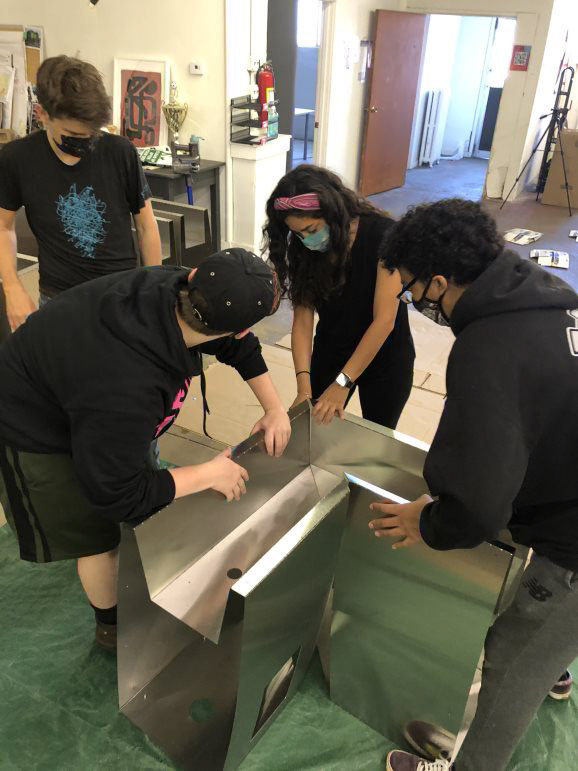
Team Build
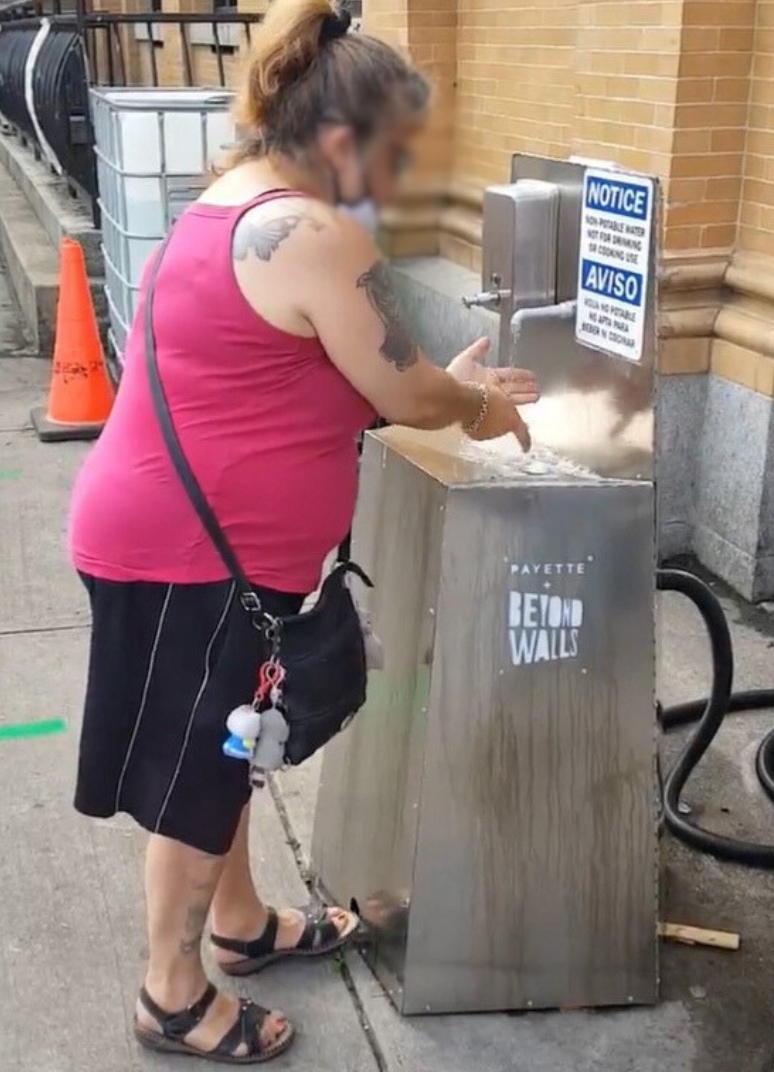
User Observation
Defining the Problem
Through footage provided by our community partners, we observed ongoing difficulties with water stations in Lynn, particularly among vulnerable and at-risk users. These key insights emerged:
01: Users who lacked an understanding of English or Spanish, or struggled with literacy couldn't recognize the risks associated with drinking non-potable water, negating the intended benefits of the design.
02: Insufficient signage caused users to confuse the soap dispenser for a hand sanitizing device. This confusion undermined the product's goal of promoting effective handwashing to combat COVID-19.
Our observations highlighted two user personas and underscored the critical need for inclusive signage to guide user behavior and promote handwashing during the pandemic.
Signage Design
In response to user concerns, we created signs to provide clear instructional steps and address the safety issues related to drinking non-potable water. As a designer, I prioritized inclusion, ensuring the needs of diverse users were met, regardless of language or literacy levels. My creative process was informed by secondary research and team input, focusing on the following considerations:
01: Accessibility of each vinyl sticker (contrast, color, font size, font type, sticker size).
01: Accessibility of each vinyl sticker (contrast, color, font size, font type, sticker size).
02: Behavioral attitudes towards instructional signage, including the effectiveness of displaying multiple steps in a clear, linear order to ensure user compliance.
03: Simplicity of the design facilitates use by individuals regardless of language or literacy skills.
04: The use of universal symbols and the importance of visual associations.
05: CDC recommendations for at least 20 seconds of handwashing to reduce the spread of COVID-19.
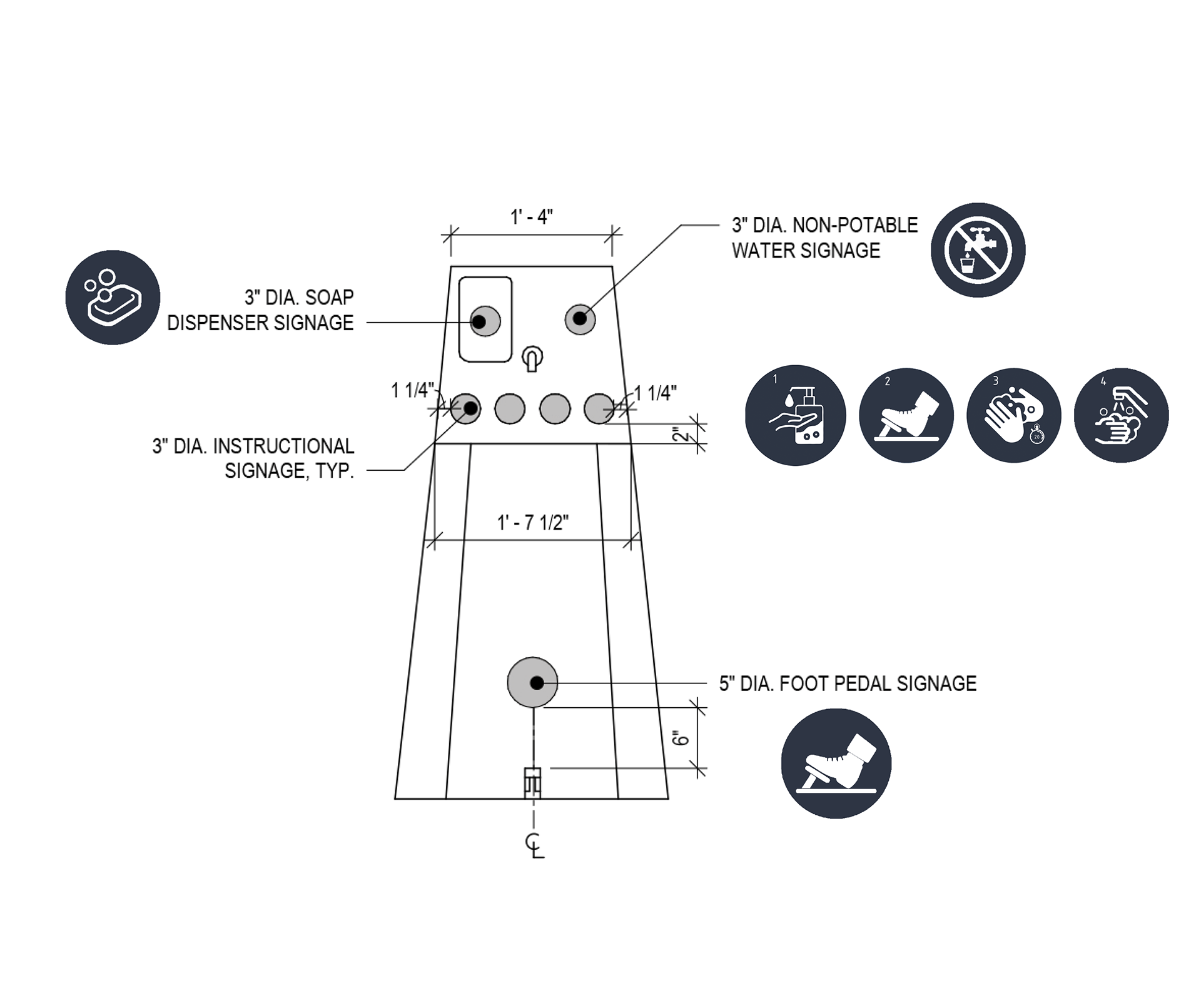
Final Iteration - Design Drawing
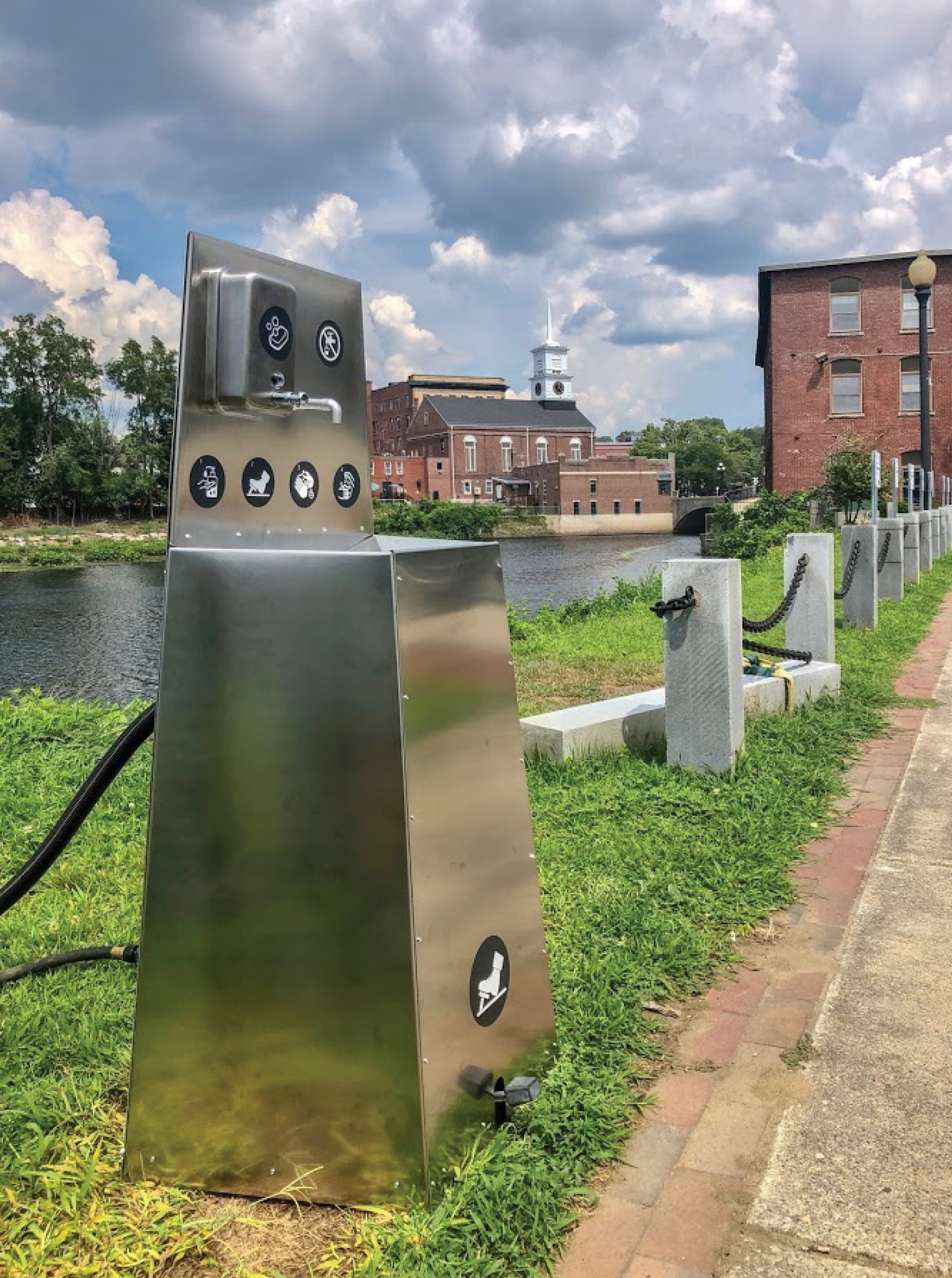
Final Iteration - Prototype
Outcome
Our signage significantly improved the accessibility of the handwashing stations, empowering users to handwash with ease. By the time I left Payette, more than 100 washing stations were installed across Massachusetts, and iterations were being considered to reduce costs and maintenance frequency. WaSH not only addressed an immediate public health crisis, it opened the door to long-term civic improvements, ensuring the success of underserved yet resilient communities.
Out of 150 entries nationwide, WaSH was 1 of 17 finalists in the 2020 AIA Film Challenge under the Health category. Each project focused on transforming communities through the power of design and collaboration.

